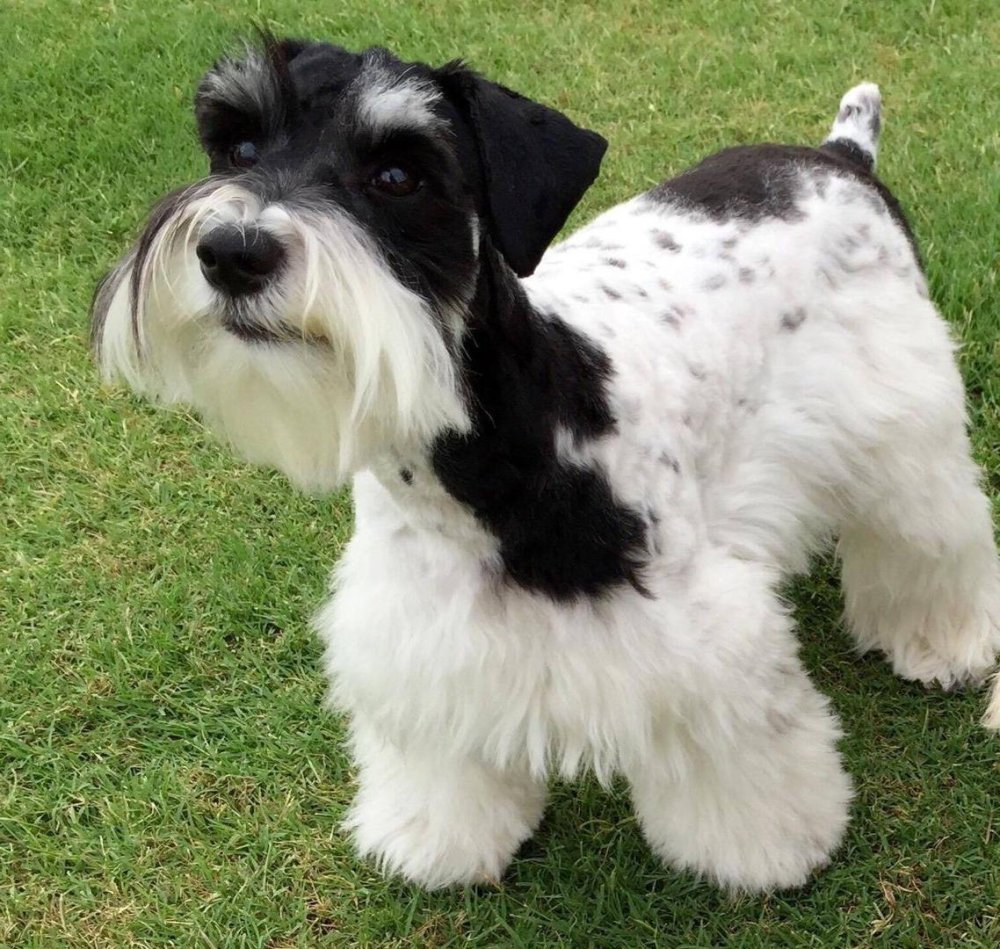- Breed Category: Terrier
- Country of Origin: Germany
- Average Height: 30-36 cm (12-14 in)
- Average Weight: 5-9 kg (11-20 lbs)
- Average Life Span: 12-15 years
- Grooming Requirements: Regular grooming and trimming needed
- Exercise Requirements: Moderate daily exercise
- Coat Type: Wiry and dense
- Coat Color Variations: Salt and pepper, black, black and silver
- Shedding Level: Low
- Ear Type: V-shaped, folded
- Tail Type: Short and erect
- Temperament: Alert, friendly, intelligent
- Intelligence Level: High
- Barking Tendency: High
- Compatibility with Children: Good with proper socialisation
- Compatibility with Other Pets: Generally good with other pets
- Training Ease: Relatively easy to train
- Common Health Issues: Cataracts, pancreatitis, allergies
- Dietary Needs: High-quality balanced diet
- Energy Level: High
- Drooling Tendency: Low
- Sensitivity to Weather: Sensitive to extreme heat
- Overall Maintenance Level: Moderate
- Original Purpose: Ratting and guarding
- Year of Recognition by Kennel Clubs: 1926
- Apartment Friendly: Yes, with sufficient exercise
- Best Suited For: Active families, singles, seniors
- Cost of Ownership: Moderate
- Unique Traits: Distinctive beard and eyebrows
- Popularity Rank: Popular worldwide
Imagine a dog that’s not just a pet but a lively companion with a personality as distinct as its appearance. Meet the Miniature Schnauzer. This breed is known for its bushy beard and eyebrows, giving it a wise and somewhat comical look. But there’s more to this little dog than meets the eye.
The Miniature Schnauzer is a small, robust breed with a big heart. Originally bred in Germany in the late 19th century, it was developed by crossing the Standard Schnauzer with smaller breeds like the Affenpinscher and Poodle. The goal was to create a farm dog that could hunt vermin and guard property. Today, they’re cherished for their intelligence, loyalty, and spirited nature.
Early Development and Role in German Farming
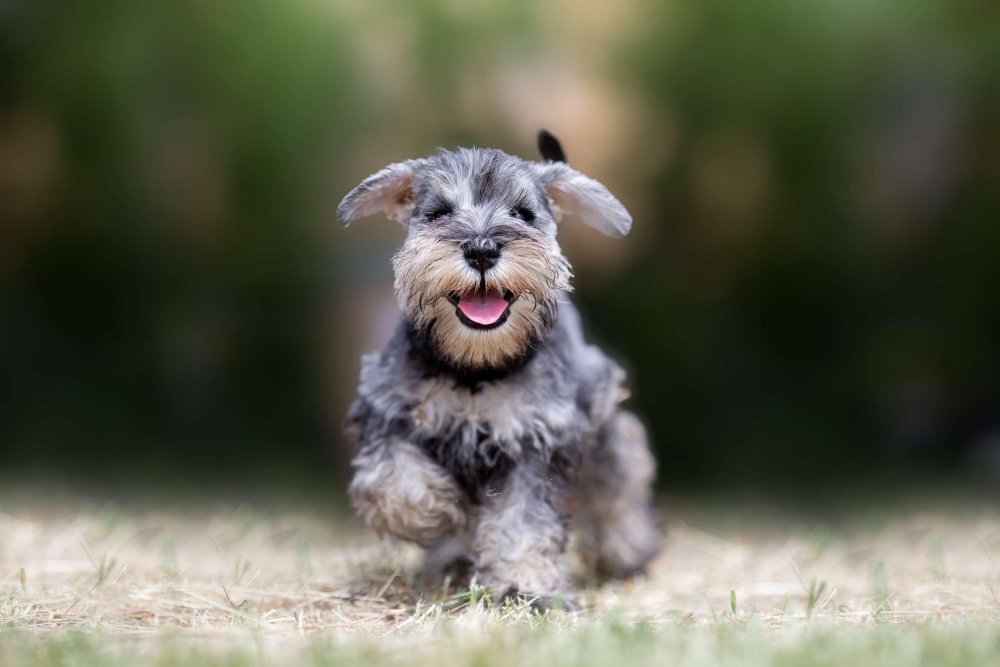
The Miniature Schnauzer’s journey began in the bustling farms of Germany, where it was crafted to be a versatile farmhand. This little dynamo was bred to be a master ratter, keeping barns and homes free from pesky rodents. Its keen senses and agile body made it perfect for the job. Farmers relied on these dogs not just for their ratting skills but also for their ability to alert them to any intruders, making them invaluable on the farm.
Key Historical Figures
Behind the creation of the Miniature Schnauzer were dedicated breeders who saw the potential in combining the Standard Schnauzer with smaller breeds. These breeders were pioneers, aiming to create a dog that was both functional and charming. Their efforts paid off, and the Miniature Schnauzer quickly became a beloved breed, known for its adaptability and spirited nature.
Physical Characteristics
With its distinctive beard and eyebrows, the Miniature Schnauzer stands out in a crowd. This breed is compact yet sturdy, with a square build that exudes confidence. Its coat is wiry and comes in various colours, including salt and pepper, black, and black and silver. These features, combined with its lively expression, make the Miniature Schnauzer a truly unique and endearing breed.
Unique Physical Traits
The Miniature Schnauzer is instantly recognisable thanks to its bushy eyebrows and beard, which give it a wise, almost human-like expression. This breed’s coat is wiry and dense, designed to protect it from the elements. It comes in a variety of colours, including salt and pepper, black, and black and silver, each adding to its distinctive charm. Despite its small size, the Miniature Schnauzer is robust and well-proportioned, with a square build that speaks to its strength and agility.
Temperament and Behaviour
Miniature Schnauzers are known for their spirited and friendly nature. They are intelligent and eager to please, making them highly trainable. This breed is also quite alert, often acting as a vigilant watchdog. Despite their small stature, they have a big personality and are full of energy, always ready for playtime or a brisk walk. They thrive on human interaction and are happiest when they are part of family activities, making them excellent companions for both individuals and families alike.
Personality and Suitability

Miniature Schnauzers are a delightful mix of alertness, friendliness, and intelligence. These traits make them not only great companions but also effective watchdogs. Their keen senses and natural curiosity mean they’re always on the lookout, ready to alert you to anything unusual. Yet, they balance this vigilance with a warm and friendly disposition, making them a joy to have around the home.
Family Pet and Watchdog
As family pets, Miniature Schnauzers are hard to beat. They’re loyal and form strong bonds with their human families. Their protective nature makes them excellent watchdogs, always ready to sound the alarm if something’s amiss. Despite their small size, they have a big presence and are always eager to be part of family life.
Interaction with Children and Other Animals
These dogs are generally good with children, enjoying playtime and being part of the action. They’re also known to get along well with other animals, especially if socialised from a young age. Their playful nature makes them a hit with kids, while their intelligence ensures they can adapt to various household dynamics.
Training and Exercise Needs
Training a Miniature Schnauzer is usually a rewarding experience. Their intelligence and eagerness to please make them quick learners. Consistent training and positive reinforcement work wonders. Regular exercise is essential to keep them happy and healthy. They love walks, playtime, and any activity that engages their sharp minds and energetic bodies.
Training, Exercise, and Health

Importance of Early Training and Socialisation
Getting your Miniature Schnauzer started with training and socialisation early on is crucial. These little guys are smart and curious, so introducing them to different environments, people, and other animals helps them grow into well-rounded dogs. Early training sets the foundation for good behaviour and helps prevent any unwanted habits from forming.
Recommended Training Techniques
When it comes to training, consistency is key. Miniature Schnauzers respond well to positive reinforcement techniques. Use treats, praise, and play to reward good behaviour. Keep training sessions short and fun to maintain their interest. Remember, patience and persistence will pay off.
Daily Exercise Requirements and Activities They Enjoy
These energetic dogs need regular exercise to stay happy and healthy. A daily walk, combined with some playtime, is ideal. They love activities that challenge their minds, like puzzle toys or agility courses. Keeping them active helps prevent boredom and the mischief that can come with it.
Health and Lifespan
Miniature Schnauzers are generally healthy dogs with a lifespan of around 12 to 15 years. Regular vet check-ups, a balanced diet, and plenty of exercise contribute to their well-being. Be mindful of common breed-specific issues like pancreatitis and eye problems, and consult your vet for guidance on maintaining their health.
Health and Care for Miniature Schnauzers
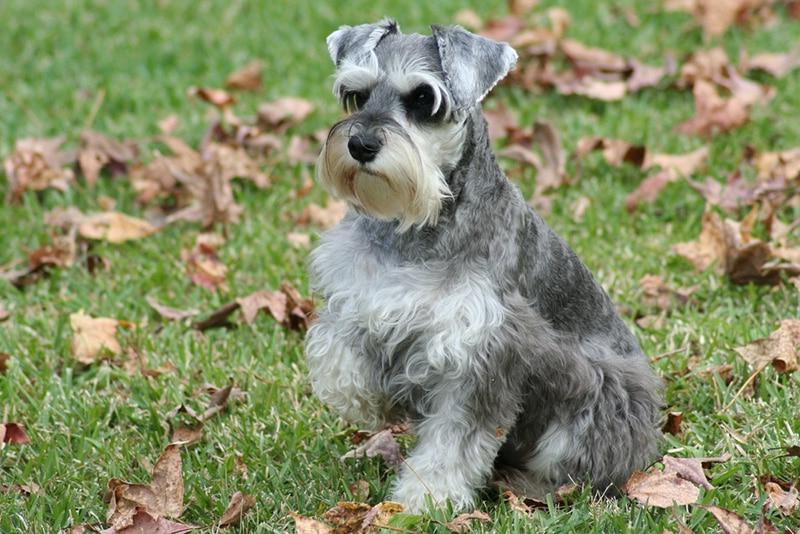
Common Health Issues
Miniature Schnauzers are generally healthy, but like all breeds, they’re prone to certain health issues. Pancreatitis and eye problems, such as cataracts, are common concerns. Regular vet visits can help catch these early, ensuring your Schnauzer stays in top shape.
Average Lifespan and Health Tips
With proper care, Miniature Schnauzers can live between 12 to 15 years. To keep them healthy, provide a balanced diet and regular exercise. Mental stimulation is just as important, so engage them with interactive toys and training sessions.
Preventative Care Recommendations
- Schedule regular vet check-ups to monitor their health.
- Maintain a healthy weight to prevent obesity-related issues.
- Brush their teeth regularly to prevent dental problems.
Grooming and Maintenance
Miniature Schnauzers have a wiry coat that requires regular grooming. Brush them a few times a week to prevent matting and schedule professional grooming every 6 to 8 weeks. Regular ear cleaning and nail trimming are also essential to keep them looking and feeling their best.
Coat Care and Grooming Routines
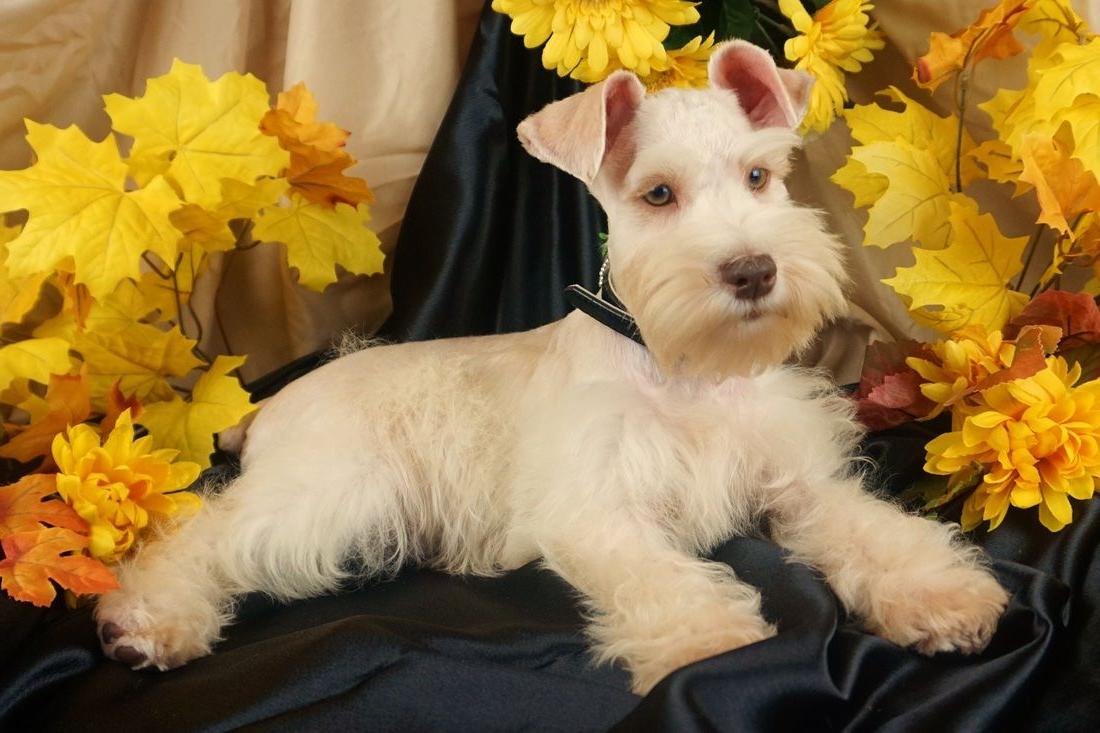
Shedding and Seasonal Grooming Tips
Miniature Schnauzers are known for their low-shedding, wiry coats, which makes them a great choice for those who prefer a cleaner home. However, this doesn’t mean they’re maintenance-free. Regular grooming is essential to keep their coat in top condition. During seasonal changes, you might notice a bit more shedding, so it’s a good idea to increase brushing sessions to a few times a week. This helps remove loose hairs and prevents matting.
Professional grooming every 6 to 8 weeks is recommended to maintain their distinctive look. This includes trimming their beard, eyebrows, and the hair around their paws. Regular ear cleaning and nail trimming are also part of the routine to ensure they stay comfortable and healthy.
Diet and Nutrition
A balanced diet is crucial for the health and vitality of your Miniature Schnauzer. These dogs are prone to pancreatitis, so it’s important to feed them high-quality dog food that’s low in fat. Look for options rich in protein and essential nutrients to support their active lifestyle. Fresh water should always be available, and treats should be given in moderation to prevent weight gain.
Consult your vet for specific dietary recommendations, especially if your Schnauzer has any health concerns. A well-fed Schnauzer is a happy and energetic companion, ready to join you in all your adventures.
Nutritional Needs and Feeding Tips
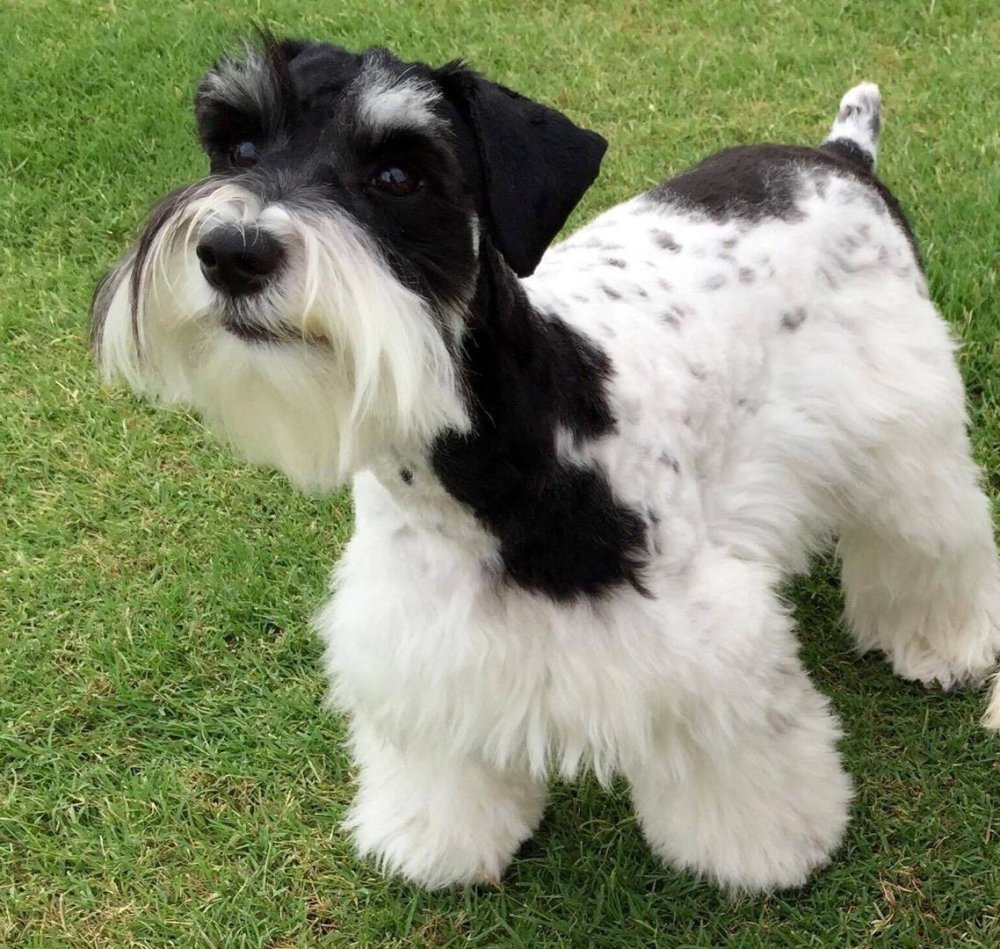
Foods to Include and Avoid
For optimal health, Miniature Schnauzers need a diet that’s high in protein and low in fat. This helps prevent pancreatitis, a common issue in the breed. Look for dog food with quality meat as the first ingredient and avoid those with excessive fillers or artificial additives. Fresh fruits and vegetables can be a great addition, offering essential vitamins and minerals. However, steer clear of fatty foods and table scraps, as these can lead to weight gain and health problems.
Feeding Schedules and Portion Recommendations
Consistency is key when it comes to feeding your Miniature Schnauzer. Divide their daily food intake into two meals to help maintain energy levels and prevent overeating. Portion sizes will depend on their age, weight, and activity level, so it’s best to consult your vet for tailored advice. Always ensure fresh water is available to keep them hydrated.
Fun Facts and Trivia
Did you know that Miniature Schnauzers have a knack for agility and obedience competitions? Their intelligence and eagerness to please make them standout performers. Plus, their distinctive beard and eyebrows aren’t just for show—they were originally bred to protect their face from vermin bites while working on farms.
Interesting Tidbits and Famous Miniature Schnauzers

Interesting Tidbits about the Breed
Miniature Schnauzers are not just charming companions; they have some fascinating traits. For instance, their distinctive beard and eyebrows were originally bred to protect their face from vermin bites while working on farms. This breed is also known for its vocal nature. They love to “talk” and will often engage in a bit of a chat with their owners, making them quite the conversationalists in the dog world.
Another interesting fact is their versatility in dog sports. Miniature Schnauzers excel in agility and obedience competitions, thanks to their intelligence and eagerness to please. This makes them not only great pets but also excellent competitors in the canine sports arena.
Famous Miniature Schnauzers in Media or History
Miniature Schnauzers have made their mark in media and history. One notable Schnauzer was “Schnitzel von Krumm,” a character from the beloved children’s book series by Lynley Dodd. In the world of television, a Miniature Schnauzer named “Max” appeared in the popular series “Hart to Hart,” charming audiences with his antics. These appearances have helped cement the breed’s reputation as both adorable and intelligent, capturing the hearts of many around the world.
Final Thoughts
The Miniature Schnauzer is a delightful blend of charm and intelligence. This breed’s unique appearance and spirited nature make it a beloved companion for many. With their keen senses and loyal disposition, Miniature Schnauzers excel as both family pets and vigilant watchdogs. Embracing their grooming and exercise needs ensures a happy, healthy life for these energetic dogs. Consider welcoming a Miniature Schnauzer into your home for a lively and loving addition to your family.
